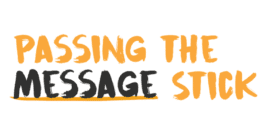The ‘fatal flaw’ plaguing policy making in Australia

14 December 2021 at 3:24 pm
Policymakers are being urged to listen more to charities working on the ground to help deliver better outcomes for the community
Charity leaders say the not-for-profit sector has been sidelined in policy making discussions, leading to policies that fail to consider the impacts on vulnerable people.
The Governance Institute of Australia’s Not-for-Profit Governance Forum held last week included a session discussing what good policy looks like, featuring OzHarvest founder Ronni Kahn AO and BaptistCare WA CEO Russell Bricknell.
When asked if the NFP sector has been participating – particularly at a federal level – around the policy table, Kahn said this was not really happening.
“I think we have been sidelined in our sector. [We are] experts because we are on the ground, actually dealing with all the levels of challenges and needs for which we have created our organisations,” Kahn said.
“And yet we are not asked to contribute to the conversation around policy making.
“It is a fatal flaw if you think about it because it’s… not asking and consulting with those on the ground to get the right outcomes.”
Bricknell added that another part of the issue was around connecting policy makers with people that receive services.
He said there was not enough consultation in this regard.
“So not only is the Commonwealth government apparently not doing serious consultation with the people that deliver the services, I can’t see evidence of them consulting with the people that are impacted by the services either,” Bricknell said.
“And so we’re getting policy being made from a sort of beliefs point of view that comes with a particular flavour of government or in an echo chamber.
“[We’re also] getting policy thought through from an ideals point of view without understanding, first of all, the impact on people.”
Both agreed that the sector has a role to play in being a voice for the people they provide services for.
Kahn said OzHarvest ran surveys all the time with its recipients and the organisations it worked with to make sure its services were appropriate and to see how things could be improved.
But she said when the charity was asked to share that information, it was told it was not in alignment with the information that government officials were getting.
“There seems to be such a divide between where information is coming from. [Officials should be] asking those on the ground where the challenges are, and how we could all work and collaborate to make the outcome better,” she said.
“It’s all about the outcome. I mean, that’s what taxpayers’ money is for – to service individuals in our country.”
Bricknell acknowledged that people in policymaking roles have endured a difficult 18 months due to the COVID pandemic.
He said they had been forced into emergency response mode that required quick decisions and adapting to difficult circumstances.
“But we’re now, in a sense, no longer in a proper emergency environment,” he said.
“We’re in a different environment and you’ve got to juggle the need to make quick responses with the need to make longer-term, well-thought through creative policy responses.
“At the moment, there’s a significant tension in the policymaking world because their masters are jumping for the quick response when their design instincts would suggest a longer-term [response is needed].”








we could also remind policy makers that ‘outcomes’ are not ‘delivered’… they are the possible result of support, of establishing good and generative relationships, of changing the structures and processes of systems, etc… language matters, i think, because it continues the existing framing of policy making and its implementation and dissemination…